Education
Five Ways Schools in the UAE Are Innovating
From virtual reality to diversity in learning, there's a lot to look forward to.
15-year-old Tanisha Crasto is fierce, determined and most comfortable when’s she’s firing powerful shots on a badminton court. The Dubai-based teenager, who has been ranked number one in the UAE and has her eyes set on Olympic gold in the future, is also one of Rahhal’s earliest recruits in the region.
Rahhal is an ambitious initiative led by Dubai’s Knowledge and Human Development Authority (KHDA). It’s a flexible education model that targets the strengths of a child and allows them to learn in a way that’s both fun and rewarding. Innovation is at the heart of Rahhal, and several schools in the UAE are poised to benefit from it.
Here’s how schools in the UAE are exploring innovation and making learning a more fulfilling experience for their students.
Encourage critical thinking
Many schools in Dubai are focusing on boosting children’s critical thinking abilities in the classroom. In Uptown School, students are encouraged to be interactive in an environment that fosters a spirit of inquiry and allows them to voice their thoughts out loud. Another school, Clarion, aims to create a safe space for all children by encouraging students to ask questions during lessons and not being afraid of speaking up.
This can help students in becoming independent thinkers and hone their problem-solving skills as they collaborate with one other.
Additionally, asking children what they think about a particular topic is a great way to get insightful, thought-provoking answers. For example, Dutch TV presenter and writer, Khadija Massaoudi, asked children in Amsterdam philosophical questions for a project on some of the world’s biggest problems. The responses she got were unbelievable.
Massaoudi asked, “What do you need to be happy in this life?”
10-year-old Oscar said, “I’m not sure anybody can be happy, like forever. You can be happy at one point and in time, but then you’ll just start wanting more and more. I think humans want what they don’t have.” That’s a pretty philosophical and mature answer from a 10-year-old! Encouraging children to think deeply and share their opinions can be a truly rewarding process, preparing them for the world outside the classroom.
Virtual reality can give you wings
Incorporating technology into education is a great way to ensure you and your students are keeping up with the times. Options like Google Expeditions are making classrooms a lot more exciting, allowing teachers to use augmented reality (AR) and virtual reality (VR) to bring topics of study to life. Several schools in the UAE have incorporated VR technology into their lessons such as Gems Modern Academy, Jumeirah English Speaking School and Foremarke.
At Gems, the special education needs department uses VR to introduce children to an immersive environment where they learn about new topics, concepts and theories. For example, a fourth-grade child had difficulties understanding the solar system, but being exposed to planets in an immersive setting made it easier for the student to grasp the concept.
In 2016, the Ministry of Education launched an initiative to encourage schools to embrace immersive learning, starting with 17 reputed schools in the country. In many of these classrooms, VR headsets have been introduced to let students explore fascinating scenarios and examine important global phenomena. Students can understand the adverse effects of climate change in real time or go on a virtual visit to the International Space Station.
Technology can be incredibly effective as a learning tool in classrooms for children of different age groups. It can help them in understanding concepts through immersive experiences instead of being limited to restrictive traditional methods. Students can walk with dinosaurs, hop on a ride around the solar system or visit notable museums such as the Louvre in Paris via VR apps, grasping concepts and places better than ever before.
The UAE is a melting point of different cultures. Diversity, a multicultural environment and inclusivity are incredible values in schools that can go a long way in raising responsible, intelligent and mindful citizens.
Additionally, encouraging teamwork, cultivating a safe space for all children, including students of determination, will help make your classroom a more creative, patient and open-minded environment.
For example, Cranleigh Abu Dhabi, has a value system that seeks to encourage inclusivity, acceptance and respect. A 2017 report by schoolscompared.com commended Cranleigh for its approach towards holistic development. “The school tears up any rulebook that says all that matters is league tables and breathes cultural life into every aspect of school provision,” it said. Students are exposed to music, art, drama and design through workshops and performances. Furthermore, it added that the school encourages cross-curricular activities and innovation across the arts, making it a case study for schools in the region. Inclusive spaces in schools will encourage young budding thinkers to become confident, successful individuals who aren’t afraid to stand out.
STEAM is everything


Photo courtesy: STEAMathalon
Forget STEM, it’s all about STEAM! A STEAM-based approach in education targets math, art, science, technology and engineering. Here, hands-on learning, taking risks and experimentation are welcome. STEAM-based education methods acknowledge that students will grow up in a world that’s high-tech and competitive — they have to be trained for jobs that don’t even exist yet. Children also have to be excellent multi-taskers with rich skill sets.


Photo courtesy: STEAMathalon
Schools in the UAE are whole-heartedly embracing this idea and making STEAM an integral part of their classrooms. This year, students at JESS Primary, Arabian Ranches, Dubai, worked on a project that involved designing a satellite to track climate-related data patterns which were then installed in their school to gather data. The project is timely: The UAE is set to launch “Khalifa Sat” as it gears up for its 2020 Emirates Mars Mission. The students were assigned the challenge as development partners to the UAE Space Agency and were encouraged to work with each other, learning through code, teamwork, troubleshooting and innovation.
STEAM is relevant. It teaches students to embrace a forward-thinking approach and tackle new challenges.
“It embraces disruptive innovation and thinking, to facilitate an education system that caters to the individual needs and circumstances of the learners,” Dr. Ashok Kumar, CEO of The Indian High School Group in Dubai, told Re:Set.
“The message of Rahhal is simple: the world is a classroom, and all learning counts.”
Rahhal is different from mainstream models because it recognizes that learning is a lifelong pursuit and can include all kinds of talents and interests that aren’t generic such as coding, sports, dance and more. Additionally, it seeks to enroll students from an early age and expand to make room for adult learners as well in the future, accommodating participants of all ages.
The Indian High School (IHS) has stepped up as the first school to introduce the flexible concept in the UAE, with three students signing up for the pilot phase. “Rahhal explores innovation in education by revolutionizing our understanding, expectation and experience of education and learning. The message of Rahhal is simple: the world is a classroom, and all learning counts,” Kumar said.
Under Rahhal, IHS will also introduce a shortened school week for students in grades 11 and 12. From April, their time at school will be reduced to 3.5 days, with students pursuing extracurricular activities or working on their academic targets for the remaining part of the week.
The key to setting up a fulfilling education model lies in embracing innovation and being open to experimentation and new ideas. This will help students rise up to the challenge of surviving in a tech-driven economy and thrive in exceptional circumstances.



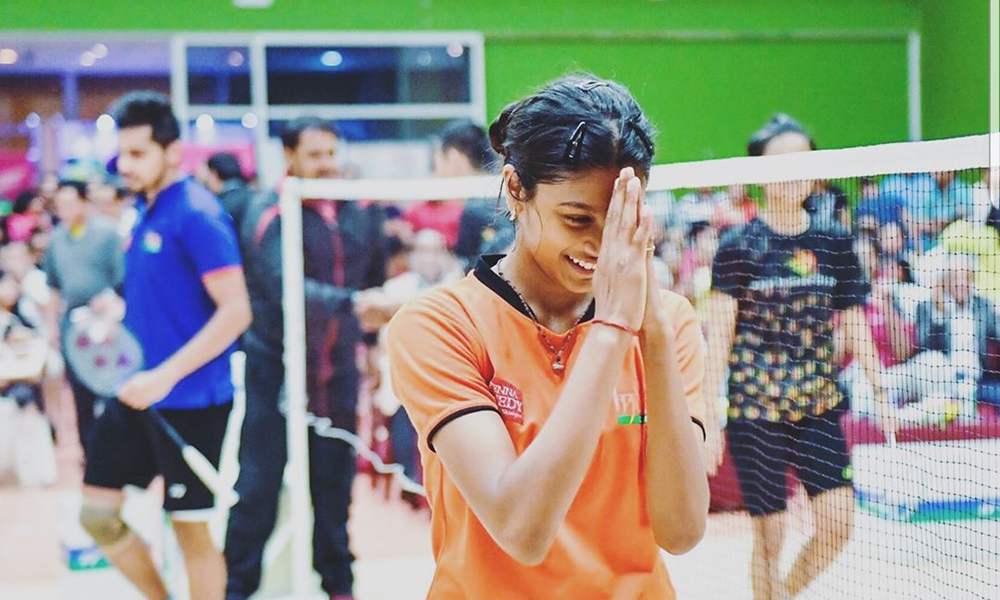








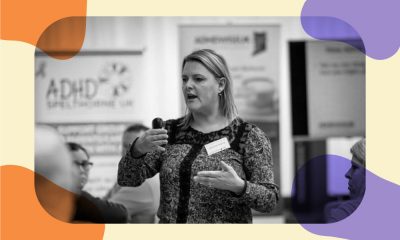
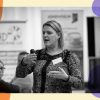
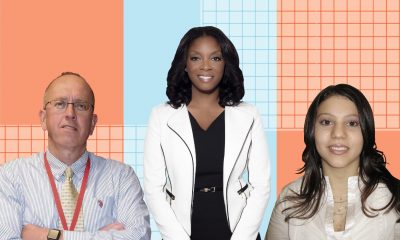

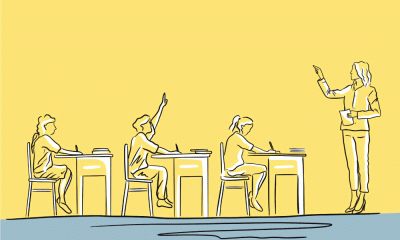
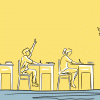
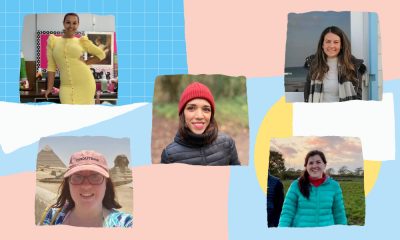

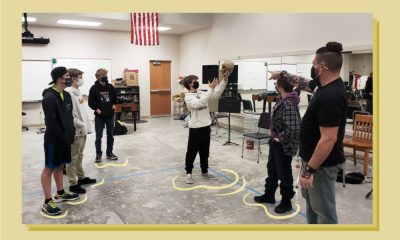
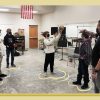




Ekta malankar
June 22, 2019 at 7:25 pm
Well written….wonderful keep up the good work
Qdot
February 12, 2020 at 1:40 pm
nice work, i appreciate your work.
excellent